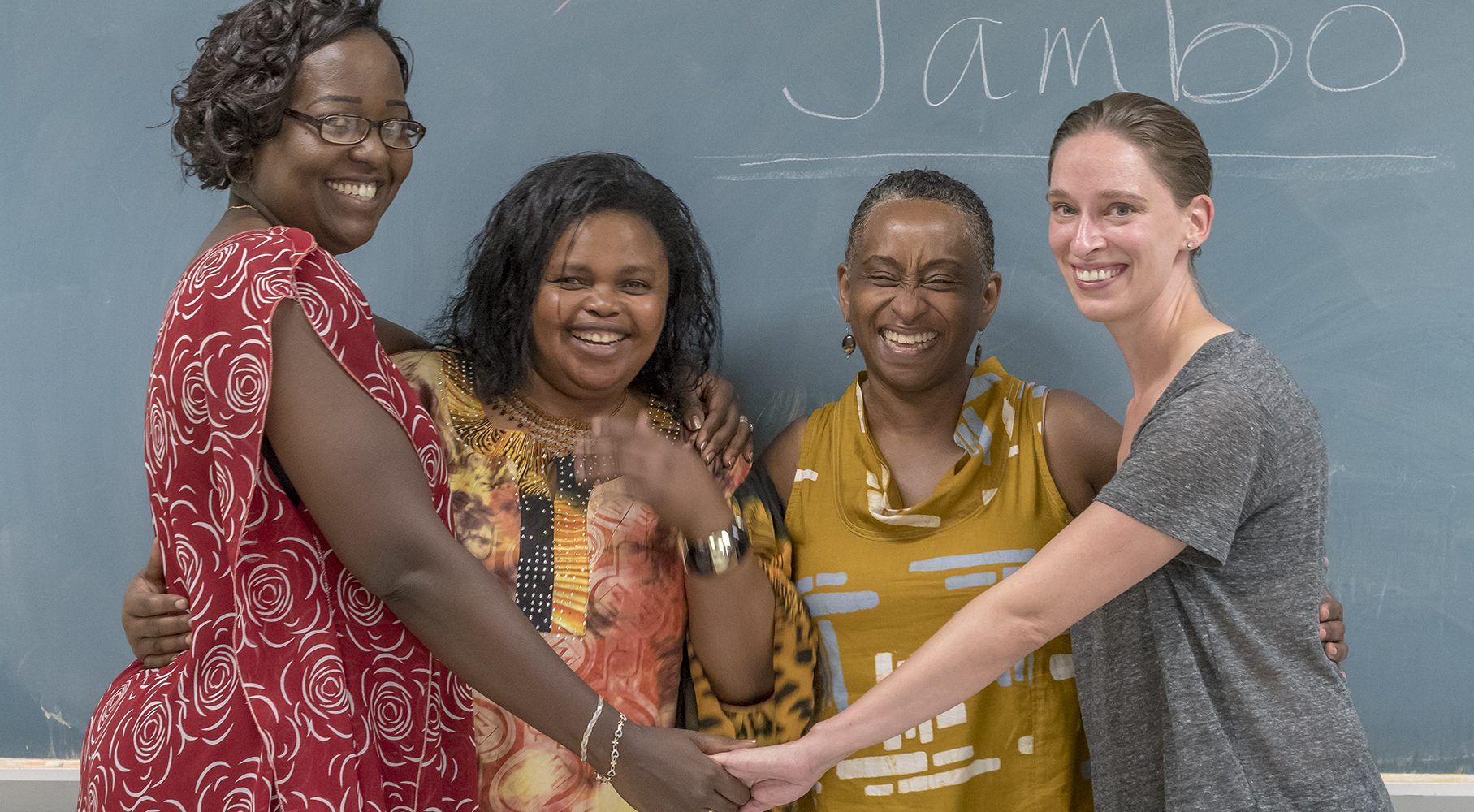Navigating the healthcare system isn’t easy. For Clementine Aulath, who immigrated to Greensboro from Central Africa three years ago, language and cultural barriers made health and financial decisions even harder.
UNC Greensboro, UNC Chapel Hill, and NC A&T State faculty are joining forces with Aulath and women like her in a community-engaged effort to ease these transitions.
Aulath is president of Umoja Women’s Group. Umoja —“unity” in Swahili — was launched in 2014 when a refugee resettlement agency caseworker noticed an influx of Congolese women who were single mothers and reached out to the UNCG Center for New North Carolinians, or CNNC, for advice.
“Our main purpose was to help women new to America adapt … so they don’t think they are alone,” Aulath explains in Swahili, interpreted by her son.
Nonprofits help refugees learn English and job skills, but federal funding for that support ceases after 90 to 180 days. Refugees are expected to rapidly become self-sufficient. Umoja hopes to facilitate that process — with a particular focus on one of the most vulnerable populations, Congolese women.
According to Pew Research Center, the Democratic Republic of Congo was the top source country for refugees resettled in the U.S. in 2016. In addition to stresses and challenges facing all refugees, Congolese women are at particular risk because of the high incidence of sexual violence in their country of origin. A 2011 American Journal of Public Health study found up to 1.8 million Congolese women had experienced rape in their lifetimes.
“The Congo is known as the worst place in the world to be a woman,” says CNNC director Dr. Holly Sienkiewicz.
Last November, the CNNC received Community Foundation of Greater Greensboro funding to implement an Umoja leadership and capacity-building initiative. The project includes plans for case management services, skill development workshops, and social support — all facilitated by Congolese refugee women — and aims to prepare participants for employment and economic independence.
“Our refugees come from circumstances we can’t imagine, and when they get here, their primary goal is, like everybody else, to take care of their families and to survive,” says UNCG associate professor of public health education Sharon Morrison.
The group of 35 women meet once a month, eat together, listen to speakers, celebrate life accomplishments, and provide social support.
Dr. Morrison works with Dr. Rachel Boit (UNCG, human development and family studies), Dr. Maura Nsonwu (NC A&T, social work), and Dr. Beth Moracco (UNC-CH, health behavior) to assess the group’s unique needs and connect it with community resources.
The interdisciplinary team focuses on child and maternal health, psychosocial issues, financial literacy, and household safety, with an emphasis on evidence-based practices.
A major accomplishment so far, Morrison says, is building trust between the vulnerable population and the faculty. The CNNC’s Natacha Nikokeza has been instrumental in building that bridge, she says.
Nikokeza immigrated to Greensboro from war-torn Burundi in 2008. She was trained at the United Nations Refugee Agency and as a resettlement assistant at World Relief.
Resettlement agencies do their best to provide what’s needed but sometimes fall short, she says. “I’ve seen those gaps, and I’m trying to see if they can be filled.”
The group is transitioning to the next phase of a two-year planning process in which members will select leadership and move forward with personal and collective goals.
“Ultimately,” explains Dr. Sienkiewicz, “we want the women to have the support and structures they need to be successful as they’ve defined success.”
Natacha Nikokeza, Clementine Aulath, Dr. Sharon Morrison, and Dr. Holly Sienkiewicz join hands before a Swahili salutation at the August Umoja gathering. See more photos on UNCG Research Flickr.
